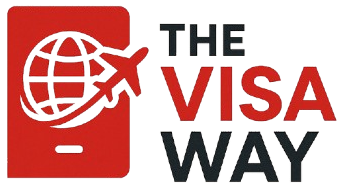Have a question
EB-2 Visa (Employment-Based Second Preference)
The EB-2 Visa is an employment-based immigrant visa for individuals with advanced degrees or exceptional ability in sciences, arts, or business. It provides a pathway to permanent residency (Green Card) in the United States and is highly suitable for skilled professionals and experts in specialized fields.
What is an EB-2 Visa?
The EB-2 Visa falls under the Employment-Based Second Preference (EB-2) category. It is designed for:
Professionals holding advanced degrees (Master’s, PhD, or equivalent) beyond a U.S. bachelor’s degree, or a U.S. bachelor’s degree plus 5 years of progressive work experience.
Individuals with exceptional ability in the sciences, arts, or business, who can demonstrate expertise significantly above average in their field.
EB-2 applicants can apply either with labor certification (PERM) or through a National Interest Waiver (NIW), which waives the need for employer sponsorship if the applicant’s work is in the U.S. national interest.
Why Choose an EB-2 Visa?
Grants permanent residency in the U.S.
Eligible for spouse and unmarried children under 21 as derivative beneficiaries.
Optional National Interest Waiver (NIW) allows self-petition without employer sponsorship.
Opportunities to work and live anywhere in the U.S.
Provides a faster and more flexible pathway than EB-3 visas.
Eligibility Requirements
Advanced Degree Category
Must have a U.S. advanced degree or foreign equivalent, or a bachelor’s degree plus 5 years of progressive experience in the field.
Job offer from a U.S. employer is usually required (unless applying for NIW).
Exceptional Ability Category
Must demonstrate exceptional ability in sciences, arts, or business.
Evidence includes letters of recommendation, awards, publications, professional memberships, or high salary.
Job offer may not be required if applying under National Interest Waiver (NIW).
EB-2 Visa Process
Labor Certification (PERM) or NIW Filing:
Employer files PERM with the Department of Labor OR applicant self-petitions for NIW.
Petition Filing (Form I-140): Submit the immigrant petition to USCIS.
USCIS Approval: Petition is reviewed and approved.
Priority Date & Visa Bulletin: Monitor visa availability (depends on country of origin).
Adjustment of Status (I-485) or Consular Processing: Apply for Green Card if priority date is current.
Biometrics & Interview: Attend USCIS biometrics and interview if required.
Green Card Issuance: Receive permanent resident status.
Documents Required
Valid passport.
Academic degrees and transcripts.
Letters of recommendation and proof of professional achievements.
Employment offer letter (if not NIW).
Evidence of exceptional ability (publications, awards, media coverage, etc.).
USCIS forms (I-140, I-485 if adjusting status).
Birth certificate, marriage certificate (for derivatives).
Medical examination report.
Timeline & Processing Time
PERM Labor Certification (if required): 6–12 months
I-140 Petition Processing: 6–12 months
Adjustment of Status or Consular Processing: 6–12 months
Overall Processing: Typically 12–24 months, faster with NIW as no labor certification is required.
EB-2 vs. EB-1 Visa
EB-1: For extraordinary ability, top researchers, or multinational managers (faster processing, higher priority).
EB-2: For professionals with advanced degrees or exceptional ability (requires labor certification or NIW).
EB-3: For skilled workers and professionals (longer wait times, lower eligibility requirements).
How We Help
Our team provides comprehensive guidance for EB-2 applicants:
Assess eligibility for advanced degree, exceptional ability, or NIW category.
Prepare and file PERM labor certification if required.
Draft strong I-140 petitions with supporting evidence.
Guidance for self-petition under National Interest Waiver.
Assistance with Adjustment of Status or Consular Processing.
Continuous support until Green Card approval.
Why Choose Us for EB-2 Visa Assistance?
Expertise in employment-based immigration petitions.
Proven track record of successful EB-2 approvals.
Tailored guidance for both employer-sponsored and self-petition cases.
Transparent communication and step-by-step support.
Maximizes chances of approval and minimizes delays.




